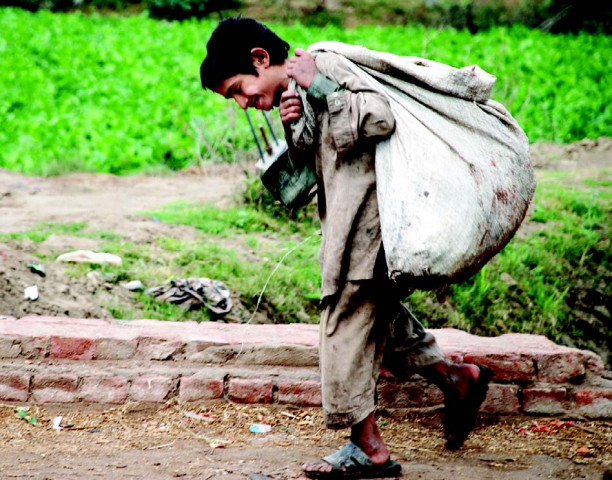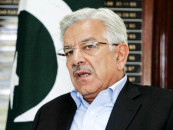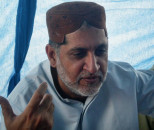World Street Children Day: Generation ‘why’?
A generation of Pakistan’s children is struggling in the streets rather than thriving in schools.

World Street Children Day: Generation ‘why’?
The number of street children in Pakistan has been increasing every year despite the Child Protection Bureau’s (CPB) attempts to control the situation.
“I have been gathering trash for two years now. I used to go to school but I dropped out because my parents had no money and needed my help,” says 12-year-old Saleem from Mianwali. “I don’t really think about what my life is like or that it can be better. This is what I have to do to help my family. My father drops me off at the main chowk every morning and picks me up in the evening. Sometimes I make money picking trash on other days I beg,” he said.
The Pakistan Child Protection Bureau (CPB) has been charged with the duty to take care of street children. The CPB reserves the right to take the children into their custody whenever they are brought to the offices attention. Under the Punjab Destitute and Neglected Children Bill 2004, the CPB reserves the right to take any street child into its custody and the designated CPB centres across the province are equipped to house, clothe, educate and feed the children until they can be sent to public school or returned to their parents.
“We have all the facilities and we reserve the right to return the child to his or her parents. If the parents are engaged in the beggary mafia we can choose not to return the child, in other cases we give the parents vocational training to ensure they can provide for the child,” said Lahore Child Protection Bureau in-charge Ulfat Abbas. Abbas said that the bureau was operating on a shoe string budget even though it had elaborate facilities that had been set up by the previous government. “We have the facilities to take care of many children but not enough of a day to day operating budget. Rescue 1122 has dozens of ambulances in each city we have only one for Lahore. We can’t do much with that but we do what we can,” he said.
The number of street children in Punjab are hard to tabulate but CPB officials have said that the only way to ensure that enough children are picked off the streets and rehabilitated is to involve the public. “We have a help line at 1121 that allows people to call in and report street children. Then we send in a team to recover them,” said a call centre operative Maria Sultan.
“I spend my days picking garbage here. At the end of the day my friends and I leave with full bags and get Rs35 for our efforts,” said nine-year-old Rehana. “We can’t always blame the parents for what is happening. Most of them are desperately poor but there are cases where children are engaged with the beggary mafia at a very young age,” said a Multan CPB officer Nadeem. He said that the centre picked up more and more children every month but the numbers kept rising.
“We pick up an average of 20 kids a month but the task is a mammoth one. We need people to call in and tell us where to start because this isn’t something that will go away in a day or a week or even a year,” he added.
Sahil NGO unit coordinator Iftikhar Mubarak said “These children are often found in such terrible condition it is extremely distressing. They are unwashed and they often have contracted infections. Just giving them a bath and a decent meal makes a world of difference in their lives. If we could take more off the street and put them in school, we would be making their future.”
With additional reporting by our correspondent from Multan
Published in The Express Tribune, April 13th, 2011.



















COMMENTS
Comments are moderated and generally will be posted if they are on-topic and not abusive.
For more information, please see our Comments FAQ